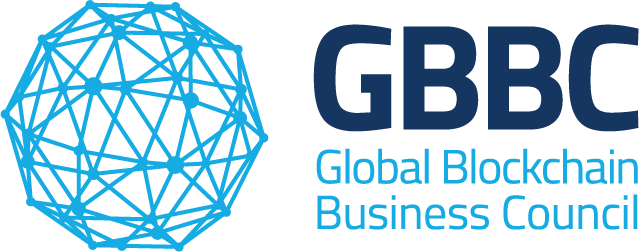
Slime World
Slime World is a play-to-earn (P2E) mobile game developed by NADA Digital. It’s the flagship title published under Hedera Guild Games and is available on Android and iOS. The game leverages the Hedera blockchain platform's speed, low transaction fees, and carbon-negative footprint to offer an engaging blockchain gaming experience where players collect and nurture pets called "Slimes" to protect their world and defend against the encroaching "Dark Slimes."
Players complete quests and embark on adventures to earn in-game currency called "Orichalcon" through various activities. The Orichalon can be exchanged for the Hedera Guild Games (HGG) token (formerly NADA Protocol token) a utility token based on the Hedera blockchain. It can be used within the game for upgrading player’s Slimes, purchasing items to aid in adventures, and creating unique Slime NFTs that can be collected and traded via an in-game marketplace.
Gameplay centers around a strategic tower defense-style "infinite mode" where players take on waves of enemies and a "PVP arena mode" wherein players battle one another using their owned or rented Slime NFTs.
Slime World also features mini-games such as "Super Jump" and "Road Crossing," a roulette system for rewards, enhanced social features including user profiles and global chat, and a built-in multi-staking service for HGG tokens.
Project Information
Related Projects

The InterWork Alliance (IWA) is an organization focused on simplifying and standardizing the use of token-powered services for businesses. As an initiative of the Global Blockchain Business Council (GBBC), the IWA works to create a common language and framework for tokenized assets, which allows different blockchain networks and applications to work together seamlessly.
The alliance's primary mission is to empower organizations to adopt and use token-based distributed services in their day-to-day operations. To achieve this, the IWA has developed several key frameworks, including the Token Taxonomy Framework (TTF), which provides a common set of definitions and standards for tokens of all types. The IWA also has a strong focus on sustainability, with task forces dedicated to creating standards for Voluntary Ecological Markets and Carbon Emission Tokens.
The Hedera network and its ecosystem partners are active members and contributors to the InterWork Alliance. Hedera has collaborated with the IWA on its Sustainability Working Group, and several applications built on Hedera are designed to be compliant with the IWA's standards.

Demia is a climate infrastructure company that provides a sophisticated technology platform for securing and verifying data in environmental markets, particularly the carbon market. The company’s mission is to increase trust, reduce friction, and unlock value by creating a transparent and auditable foundation for climate data.
The platform is centered around a "Zero-Trust Data Fabric," which ensures that environmental data—whether from on-site IoT sensors or manual inputs—is protected and verifiable from its source. This system creates a secure chain of custody for information, streamlining the complex processes of measurement, reporting, and verification (dMRV).
As a key partner in the Hedera ecosystem, Demia leverages the Hedera Guardian, an open-source framework for auditable ESG assets. This integration allows Demia to anchor its verified data to the Hedera public ledger, creating an immutable record of a project's environmental impact. This is crucial for their clients—including carbon project developers, auditors, and corporate purchasers—who require undeniable proof of climate action to meet regulatory requirements and investor expectations.

Acoer is an Atlanta-based technology firm founded in 2015 that specialises in developing blockchain-enabled software for the healthcare industry. The company's mission is to make health data more connected, usable, and secure by creating interoperable solutions that break down data silos and provide real-time insights.
Acoer's product suite includes the Health Data Explorer for analyzing medicolegal death investigation data, and HashLog, a data management and visualization tool. One of its key technologies is the Cryptographic Data Mesh, which creates a tamper-proof, auditable trail for data transactions. The company also developed RightsHash, a decentralised engine that uses NFTs to manage individual rights, such as patient consent for clinical trials.
Acoer's solutions are fundamentally integrated with the Hedera network. The company utilises the Hedera Consensus Service (HCS) to create immutable logs of data transactions, ensuring a verifiable "chain of custody" for sensitive health information. This allows Acoer to provide computational trust and cryptographic proof of data authenticity.

KuCoin is a major global cryptocurrency exchange established in 2017 and based in Seychelles. In keeping with its nickname "The People's Exchange," it serves over 40 million users across more than 200 countries and offers users interactivity with over 900 digital assets and a huge selection of trading pairs.
KuCoin provides a comprehensive suite of trading services, including spot, margin, and futures trading with leverage options. Beyond active trading, the platform features “KuCoin Earn,” which allows users to generate passive income through staking and lending. It also supports an active IEO (Initial Exchange Offering) platform called KuCoin Spotlight, giving users access to new token launches.
The exchange is known for its user-friendly interface featuring integrated tools such as advanced artificial intelligence-powered trading bots for automated strategies and pre-market trading for early access to tokens.
KuCoin's native token, KCS (KuCoin Token), plays a central role in its ecosystem, offering benefits such as trading fee discounts, daily bonuses, and participation rights in exclusive platform events. The platform also facilitates fiat-to-crypto transactions through P2P markets and third-party payment providers, supporting a wide array of fiat currencies. It also offers an integrated Web3 wallet and loyalty program.
